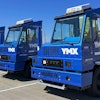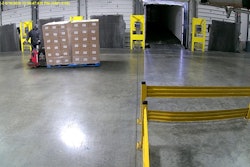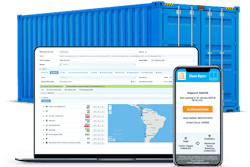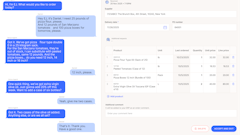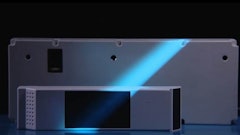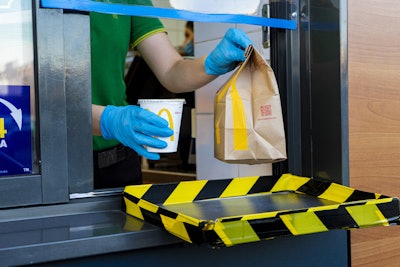
When much of the world’s economy went dark in the very early days of the Coronavirus disease (COVID-19) pandemic, quick-serve restaurants (QSR) had to quickly pivot to an uncertain new landscape of competitive pressures and challenging local and state guidelines. This “New Normal” environment, however, only raised customer expectations.
In addition to providing essential meal servicing in these unprecedented times, QSRs are now expected to provide comprehensive safety measures throughout their supply chain and daily operations to assuage concerns. Additionally, they must be flexible enough to offer a superior experience as customers increasingly opt for takeout, delivery and curbside transactions while still preparing their dining rooms to reopen as their landscape allows. All of this must be done in a sustainable manner at scale in order to defy challenging economic and competitive headwinds.
The key to differentiating in this moment lies in how QSRs are leveraging their mobile technology to keep their lines moving and their customers safe.
The ultimate combo
The venerable “combo meal” has long been a high-value proposition that allows QSRs to bundle their best and most relevant offerings – usually a sandwich, fries and a drink – in a single price that makes it easy for their customers to get what they need at a reasonable price. Similarly, QSRs are beginning to understand that piecemeal approaches to better mobile technology in their daily operations isn’t an optimal solution.
Even the most forward-thinking and tech-savvy of QSRs must account for the following regarding their mobile technology solutions:
· Rapid provisioning and deployment of devices
· Mobile device management (MDM) solutions for day-to-day control
· Always-on Internet bandwidth and connectivity at scale to allow for real-time payment processing, inventory tasks and more
· Premium support offerings to quickly troubleshoot a wide range of issues
· Rapid repair and replacement servicing
· A wide range of accessories from payment sleds to mobile printers to equip associates to keep lines moving with curbside transactions
· Continuous cleaning solutions to keep high-touch surfaces safer for associates and customers
Bundling all of this into a single offering may be the ultimate combo, but very few QSRs are equipped to handle all of this at scale in-house.
Why? Because of a franchise model that’s comprised of a network of decentralized store owner/operators coupled with a centralized corporate-owned IT department responsible for strategic and tactical measures. Traditionally, that means even simple support tasks across all of these locations must be handled by a singular corporate IT support structure, which results in longer response time and more vulnerability to tech-based disruptions. Even more important, this extends to capital investment decisions in regard to technology. The result is a complex IT operational structure that impedes technology adoption, and therefore the flexibility to respond to rapid shifts in the business landscape.
Bring on the partnerships
Social distancing at a minimum of six feet may be critical for personal safety in the midst of this pandemic, but QSRs must actually grow closer with technology partners who can enable and empower them to answer the call of this myriad of demands. What does that look like in practical terms?
One recent example involves an enterprise mobility services provider teaming up with a telecommunications company to offer QSR operators a turnkey solution that bundled extensive wireless infrastructure, devices/accessories and automated ultraviolet-light (UV) cleaning solutions backed by extensive support from USA-based trained agents and repair depot facilities. These are all must-haves in the current landscape, but perhaps the biggest benefit for QSR operators is that they can enjoy a single point of contact to manage these devices and services across all of their locations – and all at a reliable monthly cost per device.
The advantages to this are considerable. QSR operators don’t have to rely upon in-house teams for designing an optimized mobile technology blueprint that is flexible and sustainable amidst changes in the business landscape and technology in general. They can offer an ideal ‘out-of-the-box’ experience that is tailored to the needs of their brick-and-mortar locations. Visibility of their mobile ecosystem is always available on-demand with updated reports, usage histories and more on tap from a single dashboard. Most importantly, they’re empowered to protect their brand experience regarding curbside or drive-thru ordering across all of their locations.
This is the key to ensuring happy, loyal repeat customers during uncertain times. Long after the pandemic passes, these impressions of a safer, more convenient QSR experience will not be soon forgotten.
Thinking differently
The COVID-19 pandemic has truly forced QSR operators and decision makers to rethink both the way that they leverage their physical locations and the technology that they turn to solve the related challenges. Social distancing, regulatory compliance, customer concerns and immense competitive pressures are all having an outsized impact on both customer and employee expectations.
The good news is that smarter applications of mobile technology – paired by extensive partnerships with the providers who can help manage and enable these solutions – offer an immediate avenue for QSR operators and their technology decision makers to pivot to a superior customer and employee experience for the tumultuous business environment of today and the unknown challenges to come. Thinking differently about how to put it all together in the “ultimate combo” of mobile technology offerings will grant a sizable advantage to the more innovative and forward-thinking players in the QSR space. The only question that remains is: Will your organization be among them?



